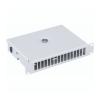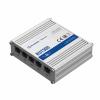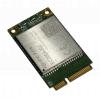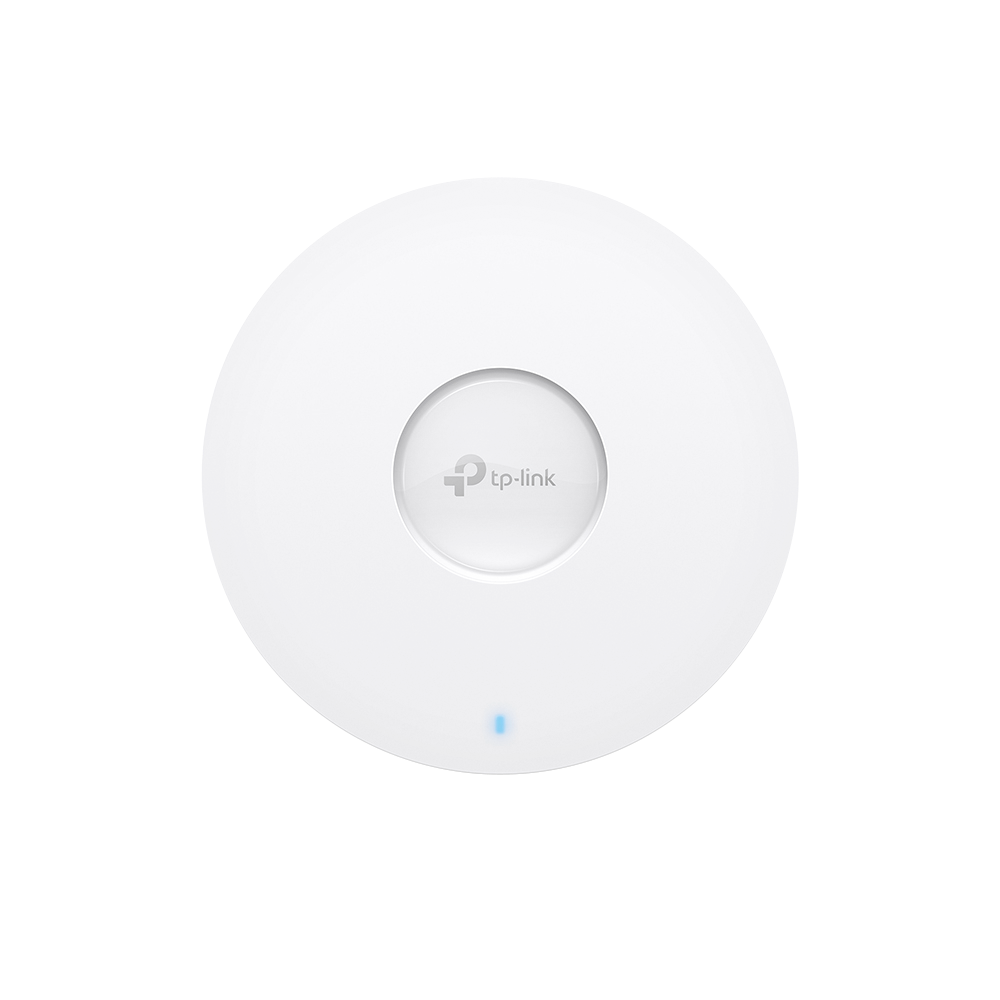-
Kč
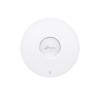
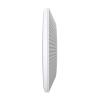
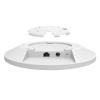

The TP-Link EAP673 is an access point designed to work with the Omada system. It supports Wi-Fi 6 wireless networking and uses the IEEE 802.11 b/g/n/ax protocols on the 2.4 GHz band and IEEE 802.11 a/n/ac/ax protocols on the 5 GHz band. The maximum theoretical throughput is 574 Mbps on the 2.4 GHz band and 4804 Mbps on the 5 GHz band. This high speed is achieved through the use of 4x4 MIMO technology on the 5 GHz band. The EAP673 offers significantly higher throughput than standard AX3000 2x2 MIMO solutions. It features a 2.5G Ethernet port with PoE+ (802.3at) power input. Optionally, power can be supplied through a DC jack. The housing is designed for wall or ceiling mounting, with the default installation location being the ceiling.
The device is designed to operate within the Omada ecosystem. This system allows for centralized management of multiple access points to create a unified, extensive wireless network. As you move between different devices, you will be automatically switched without losing your Wi-Fi connection. Omada provides many advanced features for network configuration and maintenance. It is a solution dedicated to professional use in offices, restaurants, schools, universities, and markets.
Note: The power adapter is not included in the package!
Wi-Fi 6 AX5400
The access point can transmit a Wi-Fi 6 wireless network and supports IEEE 802.11 b/g/n/ax protocols on the 2.4 GHz band and IEEE 802.11 a/n/ac/ax protocols on the 5 GHz band. The maximum theoretical throughput is 574 Mbps on the 2.4 GHz band and 4804 Mbps on the 5 GHz band. This high speed is achieved by using 4x4 MIMO technology on the 5 GHz band.
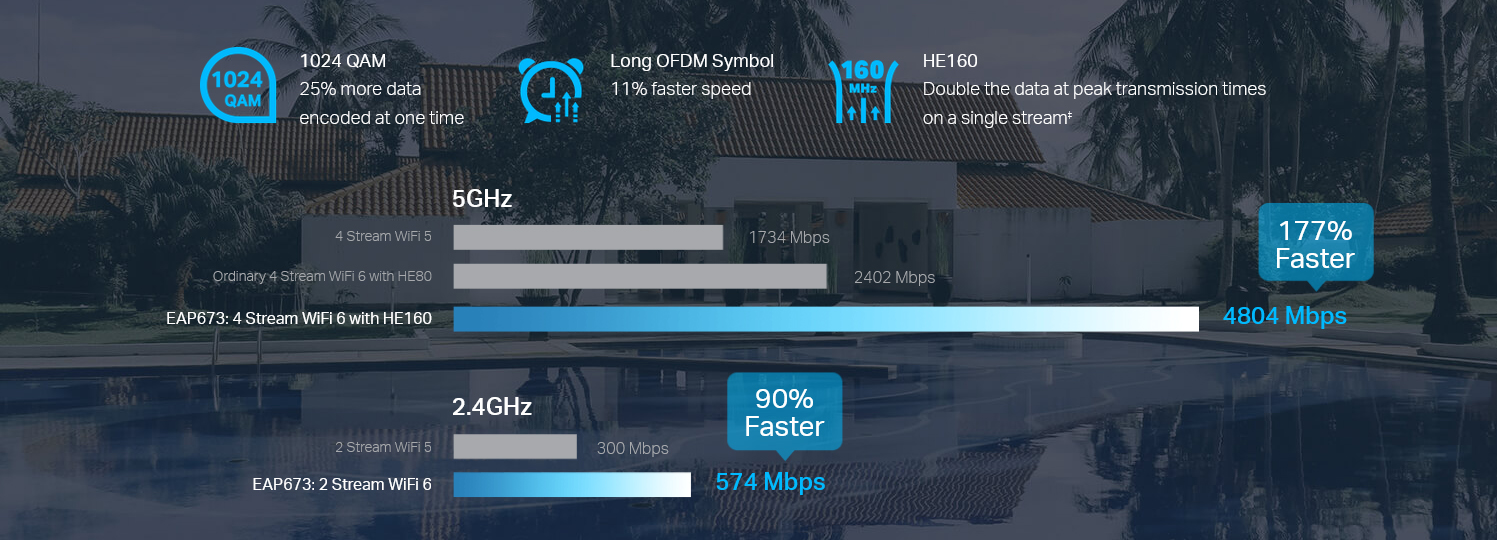
High Performance with Multiple Users
The product uses OFDMA and MU-MIMO technologies, which are highly desirable when your network is used by many users simultaneously. The first technology, OFDMA, allows for multiple data streams and does not block a channel for just one client. MU-MIMO enables simultaneous transmission and reception from multiple users, eliminating data queuing. In many home networks, a large number of devices are connected to Wi-Fi, including computers, phones, TVs, consoles, printers, and various smart home appliances. The EAP673 ensures high network performance in every situation.

Omada system
The device is designed to operate within the Omada ecosystem. This system allows centralized management of multiple access points to create a unified, extensive wireless network. As you move between different devices, the system will automatically switch your connection without losing the Wi-Fi connection. Omada provides many advanced features for network configuration and maintenance, making it a solution tailored for professional use in offices, restaurants, schools, universities, and markets.
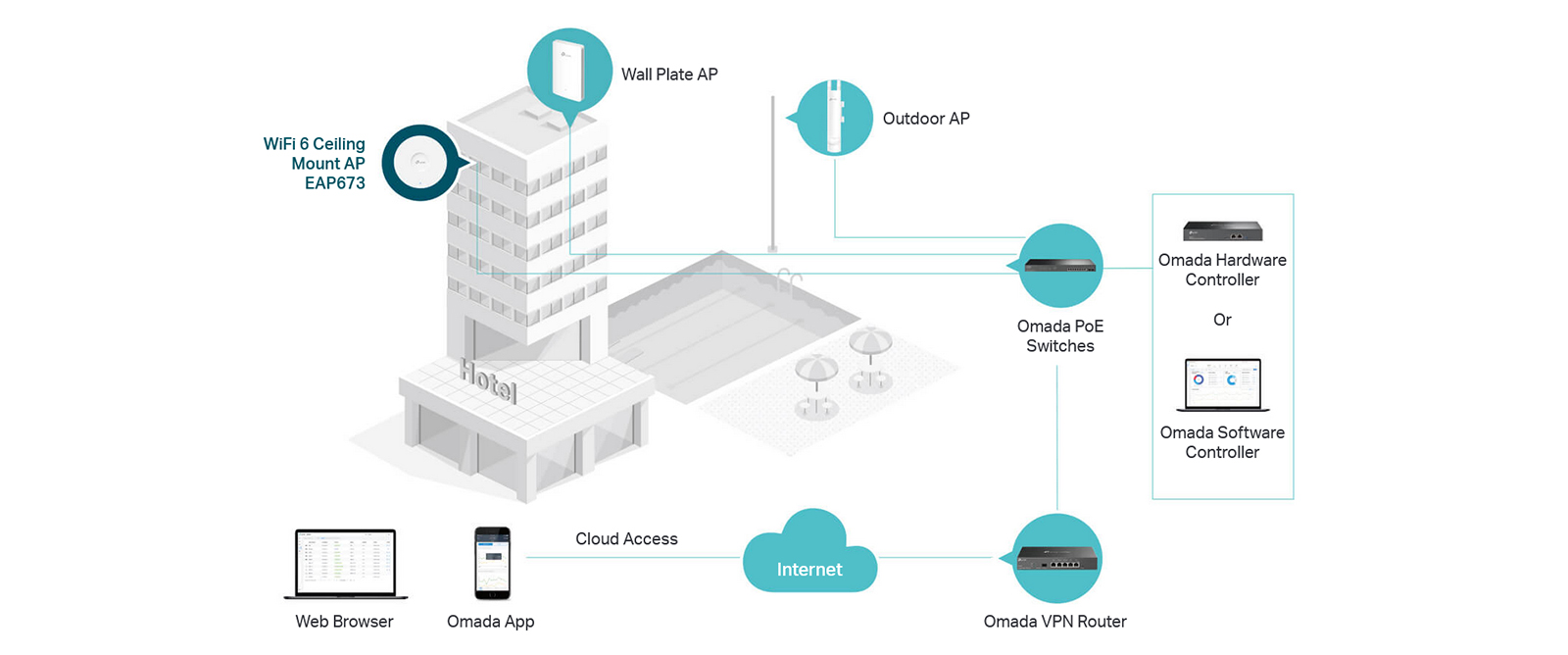
Omada Mesh
The offered product supports Mesh technology, allowing it to communicate wirelessly with other access points. This eliminates the need to run Ethernet cabling to each device, which greatly simplifies installation in many locations.

Network Optimization
The Omada system optimizes connections between access points within the network. It ensures an appropriate backhaul link so that the Wi-Fi transmitted by each device maintains high quality. In the event of a failure of one access point, the system finds an alternative connection to ensure the entire network continues to operate smoothly.

Roaming
A network managed by the Omada system is seen under a single name. Regardless of the number of devices transmitting Wi-Fi, you do not need to switch between them manually. The Omada system automatically decides which access point you should be connected to at any given moment to ensure the best possible signal. During the switch between devices, the network will continue to operate without noticeable drops in performance.


Guest Network
You can create up to 16 different SSIDs (network names) in total. A dedicated guest network is separated from the main network resources, which significantly enhances security.
Captive Portal
You can create a custom welcome page for user authentication. For login, you can use vouchers or SMS codes, for example. 802.1x authentication provides high security for the connection.


WPA3 encryption
With the Wi-Fi 6 standard, the access point supports modern data encryption—WPA3. Your network is protected against external attacks at a much higher level compared to Wi-Fi 5 and earlier devices.
Band steering
The Omada system automatically determines which band a user should be connected to. If a client is on the edge of coverage or if the 5 GHz network is too congested, the system will connect the client to the 2.4 GHz band. Otherwise, for optimal throughput, the system will use the 5 GHz band.


Load balancing
Omada allows for load balancing. In this mode, the system attempts to distribute the load evenly across access points so that no single access point is significantly more burdened than the others. Users will be switched to other available access points to achieve this balance.
Airtime Fairness
In networks without airtime fairness, older wireless devices with lower speeds can block access for clients using newer standards. Airtime fairness balances network usage among devices with different protocols to increase overall transmission throughput.

Specifications
| TP-Link EAP673 | |
| Hardware features | |
|---|---|
| Interface | 1× 2.5 Gigabit Ethernet (RJ-45) Port (supports IEEE802.3at PoE) |
| Button | Reset |
| Power Supply | 802.3at PoE 12 V / 2 A DC (Power adapter not included) |
| Power Consumption | 20,8 W |
| Dimensions ( W x D x H ) | 220 × 220 × 32,5 mm (8,7 × 8,7 × 1,3 cali) |
| Antenna Type | Internal Omni 2.4 GHz: 2× 4 dBi 5 GHz: 4× 5 dBi |
| Bluetooth | V5.2 |
| Mounting | Ceiling /Wall Mounting (Kits included) |
| Wireless features | |
| Coverage | 140 m2 |
| Concurrent Clients | 250+ |
| Wireless Standards |
Wi-Fi 6 2,4 GHz: IEEE 802.11 b/g/n/ax 5 GHz: IEEE 802.11 a/n/ac/ax |
| Frequency | 2,4 GHz and 5 GHz |
| Signal Rate | 5 GHz: up to 4804 Mb/s 2,4 GHz: up to 574 Mb/s |
| Wireless Functions | 1024-QAM 4× Longer OFDM Symbol OFDMA Multiple SSIDs (Up to 16 SSIDs, 8 for each band) Enable/Disable Wireless Radio Automatic Channel Assignment Transmit Power Control (Adjust Transmit Power on dBm) QoS(WMM) MU-MIMO (5G: 4x4 DL/UL MU-MIMO) HE160 (160 MHz Bandwidth) Seamless Roaming(802.11k/v/r) Omada Mesh Band Steering Load Balance Airtime Fairness Beamforming Rate Limit Reboot Schedule Wireless Schedule Wireless Statistics based on SSID/AP/Client |
| Wireless Security | Captive Portal Authentication Access Control Wireless Mac Address Filtering Wireless Isolation Between Clients SSID to VLAN Mapping Rogue AP Detection 802.1X Support WPA-Personal/Enterprise, WPA2-Personal/Enterprise, WPA3-Personal/Enterprise |
| Management | |
| Omada App | Yes |
| Centralized Management | Omada Hardware Controller (OC300) Omada Hardware Controller (OC200) Omada Software Controller Omada Cloud-Based Controller |
| Cloud Access | Yes. Require the use of OC300, OC200, Omada Cloud-Based Controller, or Omada Software Controller. |
| Email Alerts | Yes |
| LED ON/OFF Control | Yes |
| Management MAC Access Control | Yes |
| SNMP | v1, v2c, v3 |
| System Logging Local/Remote Syslog | Local/Remote Syslog |
| SSH | Yes |
| Web-based Management | HTTP/HTTPS |
| L3 Management | Yes |
| Multi-site Management | Yes |
| Management VLAN | Yes |
| Zero-Touch Provisioning | Yes. Require the use of Omada Cloud-Based Controller. |
| Others | |
| Package Contents | EAP673 Ceiling/Wall Mounting Kits Installation Guide |
| System Requirements | Microsoft Windows XP, Vista, Windows 7, Windows 8, Windows10, Windows11, Linux |
| Operating Temperature | 0–40 ? (32–104 ?) |
| Storage Temperature | -40–70 ? (-40–158 ?) |
| Operating Humidity | 10–90% RH non-condensing |
| Storage Humidity | 5–90% RH non-condensing |






 Polski
Polski English
English Italiano
Italiano Español
Español Čeština
Čeština Српски
Српски Deutsch
Deutsch Ελληνικά
Ελληνικά Slovenský
Slovenský

